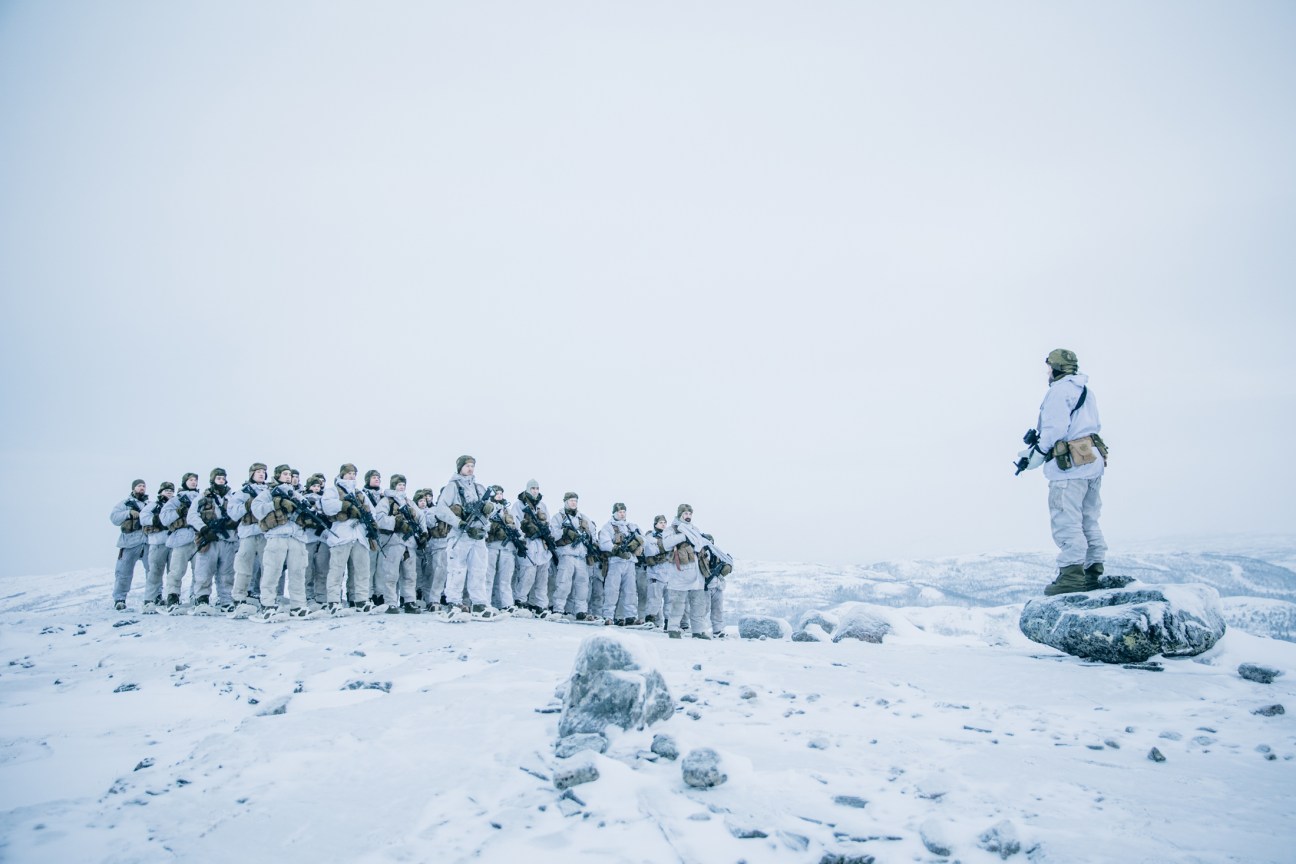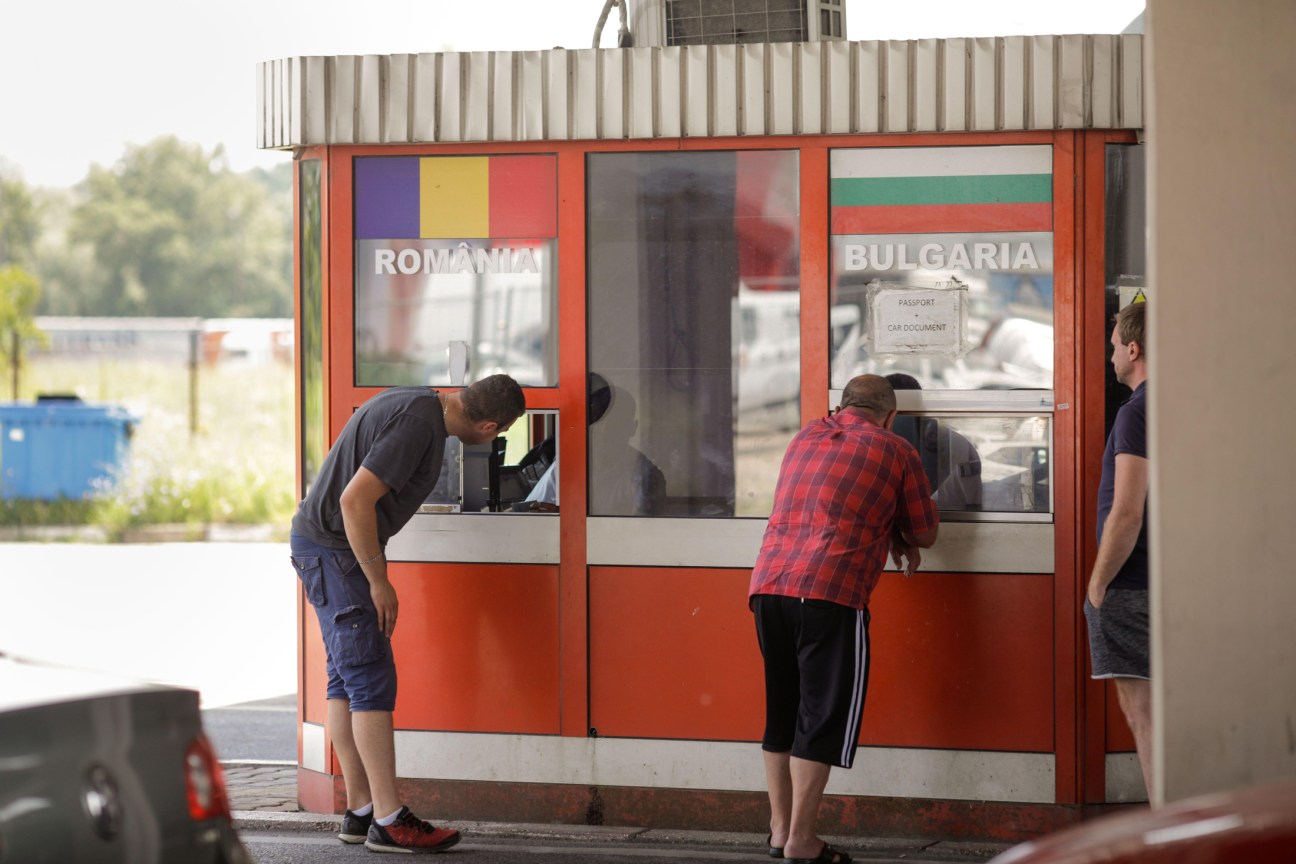The Agenda: Affairs

defence –– europe
Chills and drills
The placid snow in Norway’s Far North will soon be whipped up by helicopter propellers, then beaten back down by the sturdy boots of a multinational force. Nordic Response 2024, Nato’s largest cold-weather exercise, runs throughout March and involves more than 20,000 troops from 14 countries, including new ally Finland and prospective member Sweden.

Troops will push further north than ever before: to the picturesque Arctic village of Alta, battling harsher climes than in the previous edition of the exercise, conducted in 2022 (see Issue 153). “Even though the area is not that far from where we normally train, this exercise is different,” Torbjørn Brodtkorb Danielssen, head of strategic command and analysis for the Norwegian Armed Forces, tells monocle.
The wargame – which is part of Nato’s larger Steadfast Defender 2024 exercise – will take place over air, land and sea, and include live-fire infantry drills, naval drills involving 50 ships, including submarines, and air support from more than 100 fighter jets and helicopters in temperatures that can plunge to as low as minus 30c.
If, as looks likely, Sweden soon joins Nato, all five Nordic countries will be allies, which will give the alliance territorial resilience on its northernmost flank. Wargames such as this are a formidable show of force in Russia’s backyard. Nato is hoping to fine-tune its cold-weather preparedness while sending a clear message to Moscow.
In the basket
Scaling up

Turkey’s defence industry is a notable exception to its generally wheezing economy: its arms exports have increased by at least 69 per cent since 2018. The Otokar Cobra family of armoured vehicles, has attracted many overseas customers and seen active service with the armed forces of Georgia, Nigeria, Burkina Faso and Ukraine. Morocco’s military expenditure is on the up, reflecting rising tensions with neighbouring Algeria and perennial worries about Western Sahara. But not all of this contingent of Cobras will be deployed to deter potential foes: about 20 are believed to be earmarked for Morocco’s UN peacekeeping commitments.
In the basket: 200 Otokar Cobra II armoured vehicles
Who’s buying: Morocco
Who’s selling: Turkey
Price: €125m
Delivery date: Late 2024-early 2025
diplomatic spat
Line in the sand
Who vs who: The Maldives vs India
What it’s about: Umbrage has been taken by, or on behalf of, India’s prime minister, Narendra Modi, about disobliging descriptions made of him by a trio of Maldivian junior ministers. They referred to Modi as a “clown”, a “terrorist” and “a puppet of Israel”. These outbursts appear to have been prompted by Modi’s promotion of Lakshadweep, the picturesque chain of Indian islands.
What it’s really about: The Maldives’ economy is heavily dependent on tourism from India, so the furious Maldivian ministers might perceive Lakshadweep as a rival – though Modi is entitled to promote any part of his country. The “puppet of Israel” accusation is likely a populist appeal to the Maldives’ overwhelmingly Muslim population. India’s response was strong: summoning the Maldivian high commissioner. The Maldives responded in kind. Indian travel companies began promoting boycotts of The Maldives.
Likely resolution: Relations are likely to worsen further, even if the three Maldivian ministers are suspended. The country’s president, Mohamed Muizzu, appears to favour China over India. He gave India a deadline to remove its military presence from the Maldives. Still, military escalation seems unlikely, even with Indian elections on the horizon.
tHE FOREIGN DESK
andrew mueller on…
The year of democracy
Even amid a 21st century that has not been short on incident, 2024 looms as one of its most significant years. Whether that turns out to be significant as in “things are now significantly better” or significant as in “what fresh hell is this?” is going to be down to a cohort who have been, of late, in a notably funny mood: voters. The next 12 months will see a remarkable – indeed, freakish – aligning of election calendars. This year at least 50 countries have been or will go to the polls, including seven of the world’s 10 biggest by population – though an asterisk should be placed alongside this observation conceding that one of those electorates is Russia, whose presidential election in March is not prompting feverish activity on betting exchanges.
On recent form, it is probably correct to be apprehensive as the vox populi begins clearing its throat. Our time has seen – indeed, been substantially defined by – the fortunate citizens of democracies making strikingly eccentric decisions. It is probably fair to read this as some metropolitan liberal media elitist harrumphing from his ivory tower that the riffraff keep obstinately refusing to vote as he might prefer. But it nevertheless seems fair to point out that there is little record of Brexit, Trump and other broadly similar populist tantrums working out to the benefit of those who threw them.
A new genre of analysis has developed to explain these acts of collective self-harm. Usually practised by metropolitan liberal media elitists who didn’t vote for whatever nonsense it was, it involves setting heroically forth into the provinces/heartland/wherever to solicit the complaints of the discontented, solemnly absorbing and dutifully amplifying these utterances, then nobly accepting that it’s all our own fault for not having listened. Well, phooey. If matters go further askew in 2024 – if, for example, a sufficient plurality of Americans choose to reinstall in the White House an obvious crook and simpleton who no private corporation in the country would employ – let there be no suiting up in this combination of pith helmet and hair shirt. It will not be the fault of the media, social media, banks, universities, a furtive deep state or whoever you’re blaming. It will be the fault of the people who chose it.
It is 68 years since American journalist and critic HL Mencken died but no more perceptive observer of the democratic circus has yet succeeded him. Though Mencken seemed like the sort of chap who would enjoy being proved right, he would be bemused to behold the determination of so many to verify his definition of democracy: “the theory that the common people know what they want and deserve to get it good and hard”. –
Andrew Mueller is host of ‘The Foreign Desk’ on Monocle Radio.
geopolitics –– europe
History repeated
January marked the beginning of the phased accession of Bulgaria and Romania into the EU’s border-free Schengen Area, bringing its total number of constituent states to 29. This first stage, agreed in the final days of last year, will see the two countries – EU members since 2007 – join by air and sea, with talks on the opening of land borders to follow later this year.

The idea of staggering full entry was put forward by Austria which, along with the Netherlands, blocked the two countries’ previous bid in 2022, citing concerns over arms and human trafficking, and the rule of law. This veto touched a nerve, especially in Romania, where the government recalled its ambassador to Vienna. Some Romanian customers of Austrian banks, such as Erste Bank, then took to social media to share videos of them destroying their credit cards, while several of the Raiffeisen Bank’s branches in the country were daubed with graffiti. This provoked widespread unease among the political and business elite in Austria who regard Romania – parts of which were once ruled by the old Habsburg empire – as being within its natural sphere of influence.
When Vienna finally relented, in December, Romania’s ecstatic prime minister, Marcel Ciolacu, wrote on social media, “We’ve broken the ice. After years of anticipation, we are on the verge of achieving this dream together!” But there was also a feeling of resentment, particularly in Sofia, which had been calling for full membership with no delay. Bulgarian officials also bridled at the fact that the deal came with conditions, including a trebling of border-police numbers and an agreement that both countries accept asylum seekers. In a historical parallel that most Austrians will have forgotten, the country itself was subjected to the arrangement, known as “Air Schengen”, when it applied to be part of the zone after its own EU accession in 1995. German and Italian opposition (focused, ironically, on Austria’s perceived inability to stop illegal migrants) kept it waiting until late 1997, when the abolition of airport checks paved the way for the gradual dismantling of land-border controls with the two countries.
This shared experience is unlikely to elicit empathy from Vienna. With an Austrian general election scheduled for autumn, control over frontiers and illegal migration will be key issues this year.


